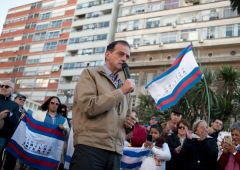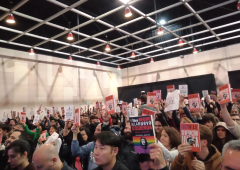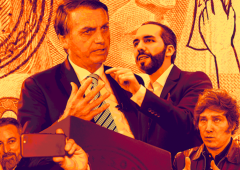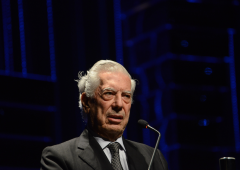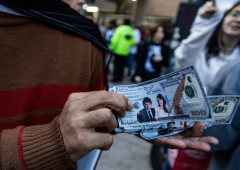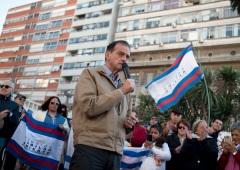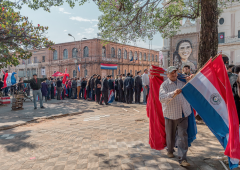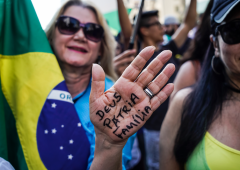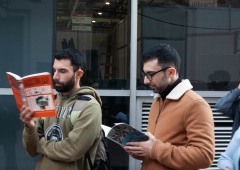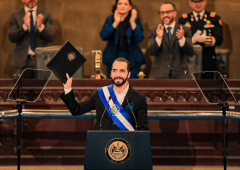News & Analysis
A new radical right with links to the dictatorship has made unprecedented gains. So far, the country’s strong democracy has tempered its worst impacts.
As the world of “politically incorrect” books moves from niche to mainstream, the radicalized right’s culture war attracts a new generation of followers.
From Spain’s Vox to Argentina’s Javier Milei, the forces of the new far right don’t resurrect historical fascism. But they are the greatest threat to democracy today.
Contenidos exclusivos en español sobre la nueva ola ultaderechista, publicados en inglés en la edición de primavera de 2024 de la revista trimestral NACLA Report.
¿Cómo se convirtió uno de los escritores más célebres de la literatura latinoamericana del siglo XX en impulsor y mentor de la nueva derecha reaccionaria de la región?
Una red transnacional conservadora ha ayudado a impulsar el ascenso de la ultraderecha. En primera fila de la ofensiva se encuentra la Fundación Internacional para la Libertad.
Una nueva derecha radical vinculada con la dictadura ha logrado avances electorales inéditos. Hasta ahora, una institucionalidad y democracia solída ha atenuado sus peores impactos.
Tras más de medio siglo de gobiernos casi ininterrumpidos del Partido Colorado, los resultados de un candidato extremista muestran señales de que el poder de los partidos tradicionales se podría erosionar.
Las fuerzas conservadoras han fusionado su rechazo visceral al Partido de los Trabajadores con tropos anticomunistas tradicionales, alimentando el ascenso de la extrema derecha autoritaria.
O ex-presidente Jair Bolsonaro chegou ao poder em diálogo com forças globais de extrema direita. Mas as raízes históricas do movimento associado a ele são exclusivamente brasileiras.
Mientras el mundo del libro de los “políticamente incorrectos” pasa de nicho a la masificación, la batalla cultural de la derecha radicalizada atrae una nueva generación de seguidores.
Aprovechando los resultados de su “guerra contra las pandillas”, el presidente de El Salvador desafió la constitución y logró le reelección. A lo largo de la región, su modelo represivo inspira a ultraderechistas.

